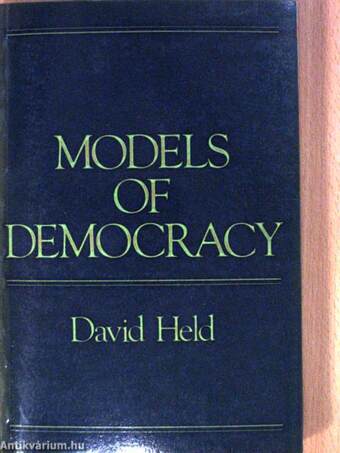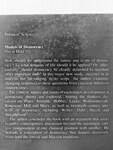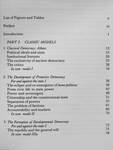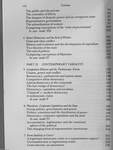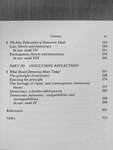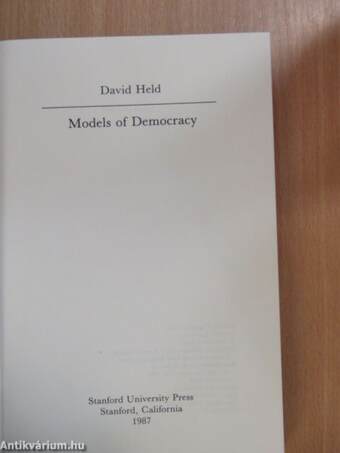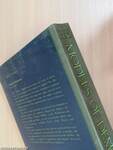1.116.661
kiadvánnyal nyújtjuk Magyarország legnagyobb antikvár könyv-kínálatát
Models of Democracy
| Kiadó: | Stanford University Press |
|---|---|
| Kiadás helye: | Stanford |
| Kiadás éve: | |
| Kötés típusa: | Ragasztott papírkötés |
| Oldalszám: | 321 oldal |
| Sorozatcím: | |
| Kötetszám: | |
| Nyelv: | Angol |
| Méret: | 23 cm x 15 cm |
| ISBN: | 0-8047-1359-6 |
naponta értesítjük a beérkező friss
kiadványokról
naponta értesítjük a beérkező friss
kiadványokról
Fülszöveg
Political Science
Models of Democracy -
David Held
How should we understand the nature and scope of democ-
racy? To what domains of life should it be applied? Or, alter-
natively, should democracy be clearly delimited to maintain
other important ends? In this major new study, succinct in its
analysis but far-ranging in its scope, the author examines
changing responses to these questions from classical Athens to
modern times.
\ s - " if fr ' V M i
The context, nature and limits of each major development in
democratic theory are explored. Among the thinkers dis-
cussed are Plato, Aristotle, Hobbes, Locke, Wollstonecraft,
Rousseau, Mill and Marx, as well as twentieth-century ana-
lysts of democracy including Weber, Dahl, Hayek and
Macpherson.
The author concludes the book with an argument that seeks
to move contemporary discussion beyond the seemingly end-
less juxtaposition of one classical position with another. He
defends a conception of democracy that departs... Tovább
Fülszöveg
Political Science
Models of Democracy -
David Held
How should we understand the nature and scope of democ-
racy? To what domains of life should it be applied? Or, alter-
natively, should democracy be clearly delimited to maintain
other important ends? In this major new study, succinct in its
analysis but far-ranging in its scope, the author examines
changing responses to these questions from classical Athens to
modern times.
\ s - " if fr ' V M i
The context, nature and limits of each major development in
democratic theory are explored. Among the thinkers dis-
cussed are Plato, Aristotle, Hobbes, Locke, Wollstonecraft,
Rousseau, Mill and Marx, as well as twentieth-century ana-
lysts of democracy including Weber, Dahl, Hayek and
Macpherson.
The author concludes the book with an argument that seeks
to move contemporary discussion beyond the seemingly end-
less juxtaposition of one classical position with another. He
defends a conception of democracy that departs decisively
from both the liberal and Marxist traditions. Vissza
Témakörök
- Történelem > Társadalomelmélet
- Idegennyelv > Idegennyelvű könyvek > Angol > Művelődéstörténet
- Idegennyelv > Idegennyelvű könyvek > Angol > Történelem > Egyéb
- Művelődéstörténet > Eszmetörténet > Történelem > Politika
- Művelődéstörténet > Átfogó művek, tanulmányok
- Történelem > Idegennyelvű > Angol
- Történelem > Politika > Politikai rendszerek
- Történelem > Politika > Politológia


